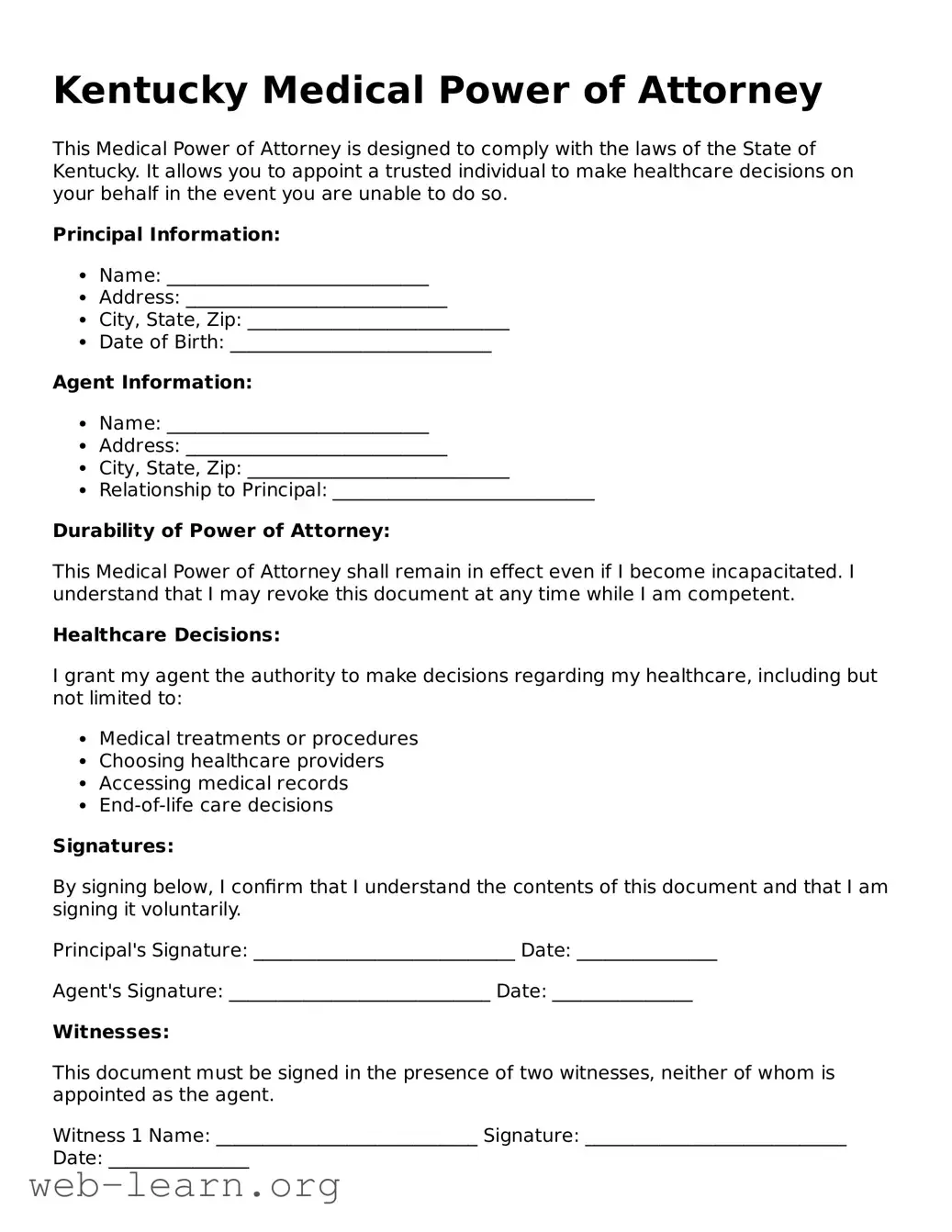Kentucky Medical Power of Attorney
This Medical Power of Attorney is designed to comply with the laws of the State of Kentucky. It allows you to appoint a trusted individual to make healthcare decisions on your behalf in the event you are unable to do so.
Principal Information:
- Name: ____________________________
- Address: ____________________________
- City, State, Zip: ____________________________
- Date of Birth: ____________________________
Agent Information:
- Name: ____________________________
- Address: ____________________________
- City, State, Zip: ____________________________
- Relationship to Principal: ____________________________
Durability of Power of Attorney:
This Medical Power of Attorney shall remain in effect even if I become incapacitated. I understand that I may revoke this document at any time while I am competent.
Healthcare Decisions:
I grant my agent the authority to make decisions regarding my healthcare, including but not limited to:
- Medical treatments or procedures
- Choosing healthcare providers
- Accessing medical records
- End-of-life care decisions
Signatures:
By signing below, I confirm that I understand the contents of this document and that I am signing it voluntarily.
Principal's Signature: ____________________________ Date: _______________
Agent's Signature: ____________________________ Date: _______________
Witnesses:
This document must be signed in the presence of two witnesses, neither of whom is appointed as the agent.
Witness 1 Name: ____________________________ Signature: ____________________________ Date: _______________
Witness 2 Name: ____________________________ Signature: ____________________________ Date: _______________
Notary Public:
This document should also be notarized to ensure its legality in the State of Kentucky.
Notary Signature: ____________________________ Date: _______________
My Commission Expires: ____________________________
